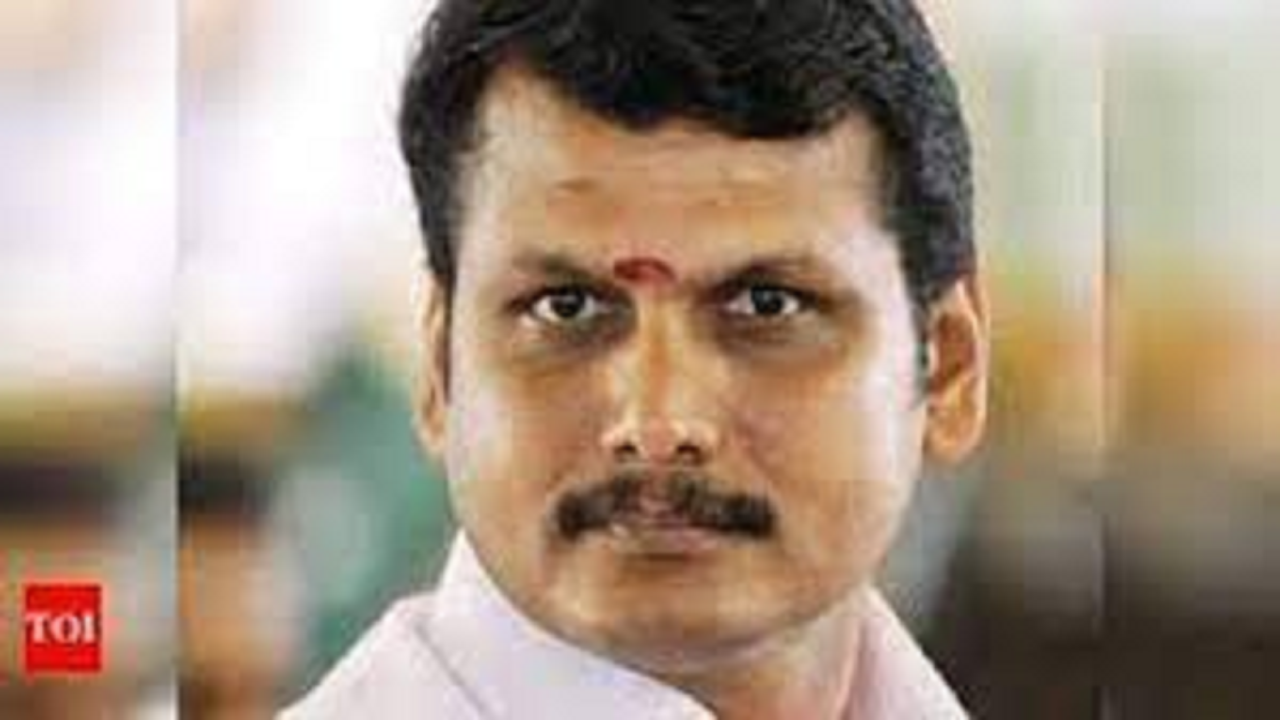CHENNAI: In a legal victory for the Enforcement Directorate (ED), a third judge assigned to break the split verdict by a two-judge division bench of the Madras high court on the validity of TN minister V Senthil Balaji’s arrest ruled Friday that the probe agency not being police doesn’t preclude it from seeking custody of an arrested accused.
“When arrest is possible, seeking custody of the arrested accused is permissible,” said Justice CV Karthikeyan, the so-called tie-breaker judge nominated by HC Chief Justice Sanjay V Gangapurwala after the division bench of Justices J Nisha Banu and D Bharatha Chakravarthy failed to deliver a consensus verdict.
“I would align my opinion with the reason given by Justice Bharatha Chakravarthy in this aspect,” Justice Karthikeyan said, referring to his colleague’s ruling that the habeas corpus petition filed by Balaji’s wife Megala was not maintainable and that the ED was entitled to custody of the accused.
The third judge said a habeas corpus petition after arrest was maintainable only in exceptional cases, which this case wasn’t.
Justice Banu had held that the agency wasn’t vested with the powers to seek police custody of Balaji under the Prevention of Money Laundering Act. The DMK minister was arrested on June 14 in a 2015 case linked to the alleged cash-for-jobs scam in the state.
On the ED’s plea to exclude the period of Balaji’s hospitalisation following his arrest while considering the custody application, Justice Karthikeyan said it was possible. “I will leave it to the wisdom of the division bench to decide the exact period of exclusion,” he added.
Justice Karthikeyan also rejected the primary argument that Balaji hadn’t been informed of the grounds for his arrest. “Money laundering is not a standalone offence in which the accused was caught unawares. He must have known the reasons since the ED was conducting a search since morning on the day before his arrest,” the judge said.
Solicitor general Tushar Mehta, representing the ED, argued for custody of the arrested minister, while senior advocates Mukul Rohatgi and Kapil Sibal contended that the CrPC didn’t permit custody of the accused 15 days after arrest. Rohatgi and Sibal also said that since the ED wasn’t a police force, it didn’t have the power to seek custody for interrogation.
“When arrest is possible, seeking custody of the arrested accused is permissible,” said Justice CV Karthikeyan, the so-called tie-breaker judge nominated by HC Chief Justice Sanjay V Gangapurwala after the division bench of Justices J Nisha Banu and D Bharatha Chakravarthy failed to deliver a consensus verdict.
“I would align my opinion with the reason given by Justice Bharatha Chakravarthy in this aspect,” Justice Karthikeyan said, referring to his colleague’s ruling that the habeas corpus petition filed by Balaji’s wife Megala was not maintainable and that the ED was entitled to custody of the accused.
The third judge said a habeas corpus petition after arrest was maintainable only in exceptional cases, which this case wasn’t.
Justice Banu had held that the agency wasn’t vested with the powers to seek police custody of Balaji under the Prevention of Money Laundering Act. The DMK minister was arrested on June 14 in a 2015 case linked to the alleged cash-for-jobs scam in the state.
On the ED’s plea to exclude the period of Balaji’s hospitalisation following his arrest while considering the custody application, Justice Karthikeyan said it was possible. “I will leave it to the wisdom of the division bench to decide the exact period of exclusion,” he added.
Justice Karthikeyan also rejected the primary argument that Balaji hadn’t been informed of the grounds for his arrest. “Money laundering is not a standalone offence in which the accused was caught unawares. He must have known the reasons since the ED was conducting a search since morning on the day before his arrest,” the judge said.
Solicitor general Tushar Mehta, representing the ED, argued for custody of the arrested minister, while senior advocates Mukul Rohatgi and Kapil Sibal contended that the CrPC didn’t permit custody of the accused 15 days after arrest. Rohatgi and Sibal also said that since the ED wasn’t a police force, it didn’t have the power to seek custody for interrogation.
#seek #Tamil #Nadu #minister #Senthil #Balajis #custody #rules #tiebreaker #judge #Chennai #News

